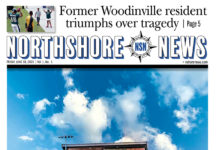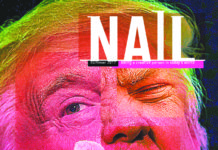By Rick Stanton
I guess I was onto something when I started Stanton & Everybody in 1991. I was sure I saw the imminent return of the small, nimble, efficient, strategically creative agency, in an era when larger, less-wieldy shops were in vogue.
I saw the value of aligning my team with other teams that did stuff we didn’t want to do or couldn’t do. I found like-minded people to work with so we didn’t have to compromise our principles, and we never went after business we didn’t believe in and couldn’t support. The Washington State Lottery comes to mind.
And if we made the mistake of finding ourselves with a client with a soul-crushing approach to our relationship, we fired them. Car Toys comes to mind.
Today, I’m reading all these articles that say the traditional advertising-agency model is headed the way of the dodo. Part of the rationale for this point of view is that traditional advertising is dead. To both of these premises, I say “bullshit.”
First of all, what the hell is a traditional advertising agency anyway? One of the very first agencies I admired was Mogelgaard & Associates in the ’80s. Mike was about as untraditional as one can get, yet his agency offered services clients wanted and needed.
He just wrapped it in a different point of sale. There was nobody like them, yet they did everything most everyone else did. They just did it better. And differently. That’s what I tried to do, though I admit, not with the same flair.
All this chatter about the demise of the “traditional agency” is mind-numbing. In my opinion, tradition is a stupid word to associate with any successful creative group. They typically do things their way, not by some understood norm.
What’s dead, in my opinion, is what I saw in 1991: ponderous ocean liners in the form of big, fat, expensive, run-by-bean counter advertising holding companies for mostly large agencies. Publicis, WPP and Omnicom come to mind.
It’s always been true—and always will be true—that it’s the smaller, more nimble, value-based shops that make the marketing world go ‘round. What medium you use doesn’t matter. The means of delivering the message are forever changing and evolving, and it’s up to today’s advertising leadership to keep up.
Advertising is the art of the popular culture; heavy on the art part because that’s where the thinking, the strategy and the creative come into play. History—not tradition—tells me I’m right. And if I were starting an agency today, I’d pull out the 1991 blueprint.













